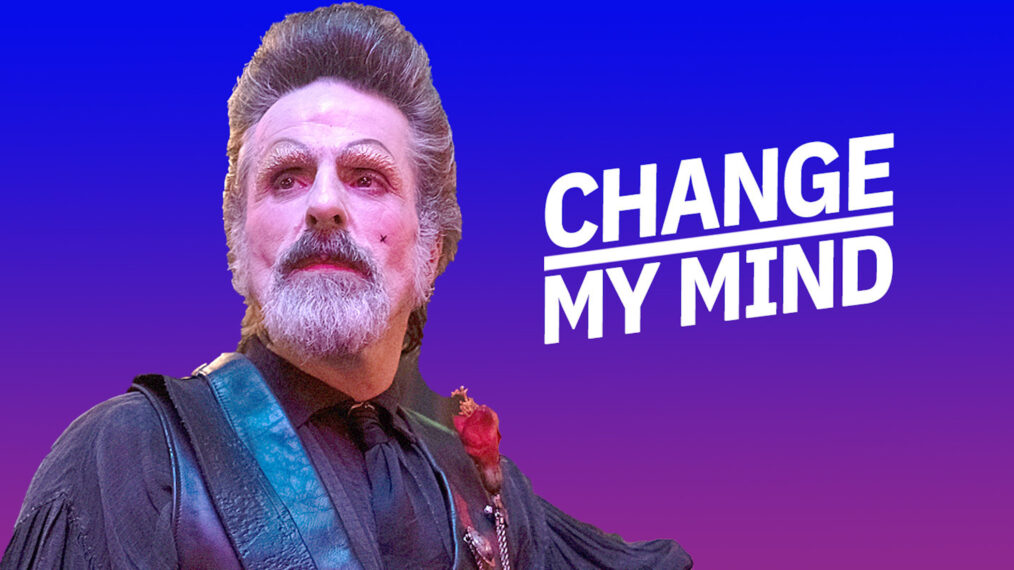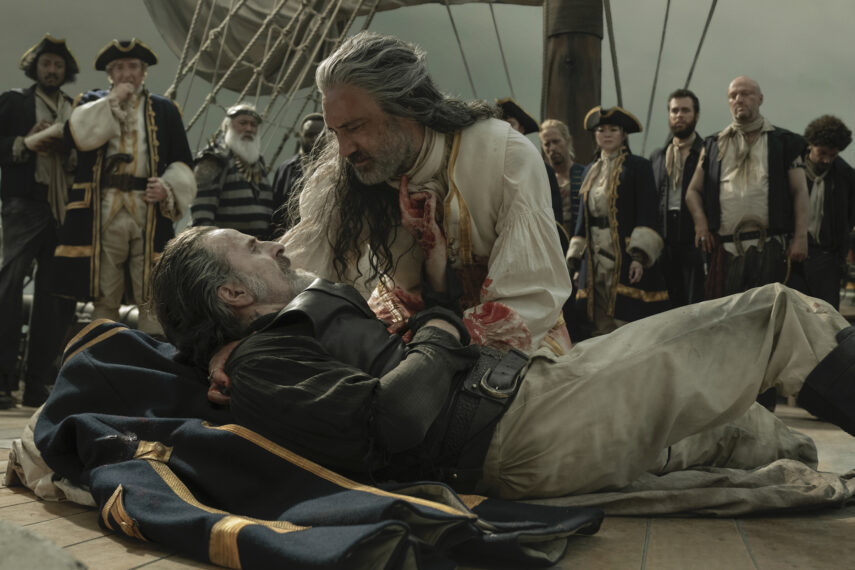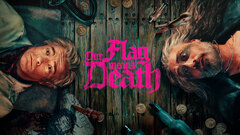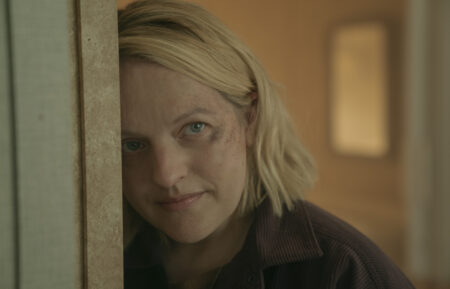‘Our Flag Means Death’: Izzy’s Season 2 Ending Made Sense

Spoiler Alert
[Warning: The following contains MAJOR spoilers for the Our Flag Means Death Season 2 finale.]
Our Flag Means Death Season 2 was filled with satisfying character arcs that set the beloved pirate rom-com up for an exciting potential Season 3. But one character’s ending has produced shockingly negative responses from some of the character’s avid fans on social media. I’m here to plant myself staunchly on the side of the writers and say I am an Our Flag Means Death Season 2 ending defender, and truly, it’s not even a bold stance to take. (Do not read the next sentence if you want to remain spoiler-free.)
The death of Con O’Neill‘s Izzy Hands made complete narrative sense and was a moving, if tragic, ending for Blackbeard’s first mate. Izzy met his end in the Season 2 finale after being shot in the gut by Richard “Ricky” Banes (Errol Shand) as the crew of the Revenge and its new shipmates carried out their plan to flee the fallen Republic of Pirates. It was the series’ first major death, which will always be a shock in any TV show.
It’s a terribly sad fate, to be sure. And it’s certainly the darkest moment of a largely cheery series (although the cheeriness is mostly found in Season 1 — Taika Waititi‘s Ed was on a murderous rampage that traumatized his whole crew for the first batch of Season 2). But even though Our Flag Means Death is a comedy, it’s still a show about pirates, pirates who risk death every time they pillage a ship. And while it’s a comforting show to many because of the sunny humor and lovable bonds between the sailors, the series is also filled to the brim with violence.
Stede (Rhys Darby) survived being hanged by the neck and being run through the gut with Izzy’s sword in Season 1. In the first finale, Nathan Foad‘s Lucius was thrown overboard by Ed and was presumed dead until Season 2 Episode 2. Leslie Jones‘ Spanish Jackie cuts off peoples’ noses and keeps them in a jar like they’re pickles. Anne Bonny (Minnie Driver) and Mary Read (Rachel House) get off by stabbing and poisoning each other. Jim (Vico Ortiz) smashed Ed’s head with a cannon ball in an attempt to kill him. The characters might be cute and fun and quirky and lovable, but the world they live in is dangerous, and the threat of death is constant. That’s the plight of the pirate life. One of the main characters was bound to meet a violent demise eventually.
Did Izzy deserve to die in this world? Of course not. He had spent this whole series becoming a better person. Dying in battle after all of that growth is the definition of the sh*t end of the stick. I would say Izzy’s violent end came as a shock, but that would be a rejection of the narrative clues of his impending end.

Nicola Dove
Following the storytelling, Rule of Three makes it clear that Izzy’s death was planned early on in Season 2. He defied death twice in the first three episodes of Season 2 alone. The first near-death experience came after Ed shot Izzy in the leg for deigning to utter Stede’s name. The leg became infected, forcing Jim and Archie to amputate it. It was rather unbelievable that he didn’t die from infection during this ordeal. And then, after the unhinged Ed found where Izzy had been hiding, he staged a conversation so bleak Izzy attempted to take his own life but failed. Surviving what should have been a fatal gunshot wound to the head was the turning point in Izzy’s mental state. He was determined to heal from that point on, and heal, he did. Much to Lucius’ chagrin at times.
Narratively speaking, it wouldn’t make sense for Izzy to survive a third brush with death. The show could either choose to not to put him at risk again, thereby betraying the plot and the plan they had already laid out plain, or they could kill him off. I’m sorry to the adoring Izzy fans, but choosing the first option would have been a bogus decision. Rather than write an ending to a story that didn’t make sense for what they had set up so far, the Our Flag Means Death team made Izzy die a hero. The wisdom he gained through his Season 1-2 evolution made him the voice of reason for Ed and the whole crew. He was the emotional leader. And as creator and showrunner David Jenkins told TV Insider after the Season 2 finale, Izzy “becomes more of a father figure to Blackbeard, but definitely a mentor to Stede. And mentors tend to die in the second act.” I’m sorry, guys. But the math was mathing.
Izzy’s beautiful monologue in the scene with Ricky, the one about piracy being about belonging to something greater than yourself, was made all the more moving because he died shortly after. While it’s fair to be sad when our favorite characters are killed off, that doesn’t mean this death came out of nowhere. And Izzy being queer does not inherently mean this death is another example of the “bury your gays” trope on TV.
For those who haven’t heard of this phrase, “bury your gays” tropes are storylines in literature or media in which a queer character dies for no good reason, the implicit message being that these characters are more expendable than the straight ones. One example of this trope is a character taking their own life because of reasons connected to being queer. Some other examples are a character being killed or physically harmed by another in the act of queer hate and introducing a queer couple only to have one die of AIDS or some other tragic fate.
For a long time on television, those kinds of stories were the only ones being told about queer people. For me, and I’m sure many other queer lovers of TV, Our Flag Means Death is a healing viewing experience in part because it rejects these tropes at every turn. To say that Izzy’s death is a “bury your gays” moment is to imply that he’s the only queer person on the show. That’s just factually incorrect.
Was Izzy’s death tragic? Yes. It was also a beautiful, heroic ending for a character who had learned all of his lessons. More than anything else, fans should want a compelling story for their favorite on-screen friends. To quote Izzy himself: Not moving on is worse.
Our Flag Means Death, Seasons 1 & 2, Available Now, Max
From TV Guide Magazine
How Hulu's 'Mid-Century Modern' Is a 'Golden Girls' for Our Times
Settle in for some older and bolder laughs with the BFFs of a certain age in the new comedy starring Nathan Lane, Matt Bomer, and Nathan Lee Graham. Read the story now on TV Insider.










